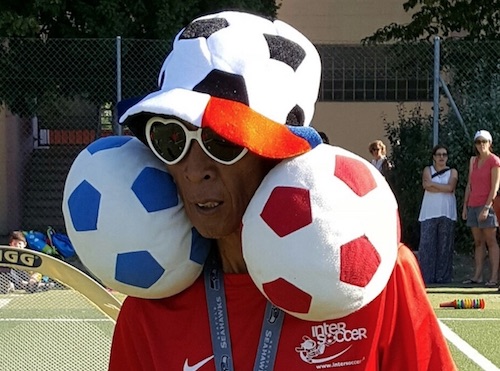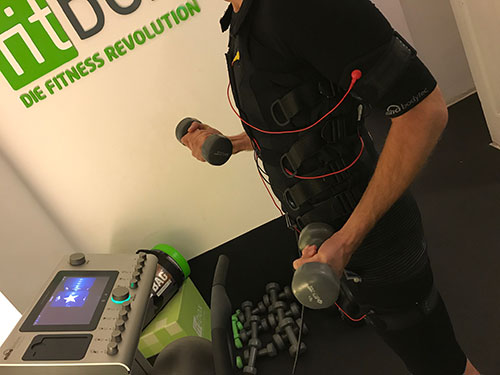Below you will find a selection of the most recent entries from bloggers in our Leisure section.
To view the entries from individual bloggers, click on the links below:
- Steve Long
Steve Long is CEO of InterSoccer, which offers football courses and holiday camps for two to 13-year-olds in Geneva, Vaud, Basel, Zug and Zurich. Steve first came to Switzerland in 2001 as an event and grassroots manager for UEFA, before co-founding InterSoccer in 2007. He loves all sports, especially football, snowboarding, tennis, golf and mountain biking. Originally from Nottingham, UK, he still supports The Mighty Reds - Nottingham Forest.
-
Oguzhan (Osan) Altun
Oguzhan (Osan) Altun is a freelance photographer based in Geneva, and one of the founder members of the Geneva Photo Club. He specializes in landscapes, portraits and event photography. His teaching style combines 10 years of training experience in corporate life with contagious passion for photography and the best training materials available online on the net. He is crisp, to the point, and focused on getting the participant practice what she/he learned.
- Yvette Evers
As the founder of "fraiche air", a local club providing opportunities for outdoor recreation and tourism in English, Yvette has hundreds of ideas for exploring the region including activities such as hiking, showshoeing, powerwalks, ski-touring and family days.

A good coach will know how to put shy children at ease, photo by Alexia Linn
By Steve Long, InterSoccer
“I never wanted to be one of those dads who drags his son to football,” said a friend to me the other day. “Yet here I am.”
He watched frustrated as his five-year-old son ran around the outskirts of the pitch, played with a ball on his own, trailed after the sister of a classmate who was on rollerskates, and basically did anything possible to avoid taking part in the local club lesson.
“I used to be a football coach,” went on my friend. “I hated those dads who forced their kids to take part. What do you think I should do?”
I took a moment to think. While I’ve experienced pushy parents trying to force their child to do a sport he or she is not comfortable with, my friend didn’t seem like one of them.
Many children are reluctant or shy the first time they try football. No matter how much they enjoy the lesson once it starts, for the first few times it is likely to take some careful persuasion for them to get ready and raring to go.
But at what point is it okay to have to employ negotiating skills to encourage their participation, and when should you call it a day and let them give up?
A key point to consider is your own reasons for wanting them to play. Is it because you think that once they get over their initial nerves they will enjoy and develop through the lessons, or is it because you like the idea of having a child who plays in a football team?
David Beckham famously has allowed his three sons to stop playing football, though he said it was “heartbreaking” to accept that they did not share his passion for the sport. Happily, his daughter is keen to continue.

Buddy, a veteran InterSoccer coach
By Steve Long, InterSoccer
What does it take to make a good children’s football coach?
Gone are the days when trainers used to think it was a good idea to focus only on the children with an obvious talent, and ignore the less natural or confident players.
Now it is accepted that a coach’s job is to ensure that every child has the opportunity to grow their skills in a supportive and encouraging environment, thereby developing into confident and well-rounded young adults, whether or not they choose to play sports beyond grassroots level.
So what does it mean to coach Generation Z?
And how can you make sure you succeed as an outstanding coach? For many people their first experience of coaching is during adolescence, helping out at their local football club or grassroots organisation where they learned to play themselves.
However, just because you know how to play football, doesn’t mean you already have the soft skills needed to teach it.
If you are just starting out, whether as a teenager or perhaps as a parent helping at your child’s school, follow these principles of coaching and you can’t go wrong.
1. Know your football. Almost as soon as they start learning to play – and sometimes beforehand– many children love to watch live matches on television with their families. Help them to learn the rules of the game by discussing what they saw next time you meet them.
2. It goes without saying that to teach football, you have to play well. If you are no longer in a team, sharpen up any rusty skills by joining a friendly five-a-side and try to remember what it felt like to believe that one day you could end up playing for your country.
3. Have the patience to teach techniques from scratch. Good teaching is being able to explain something you have done thousands of times, at the right pace for someone who has completely fresh eyes and probably needs several attempts to understand the concept.

By Dean Marriott
This summer I made the move from Morges to Berlin. After 4 years in Switzerland, the time was right for a change.
I had bought my apartment in Berlin some 10 years ago with the intention of one day taking advantage of this wonderful city. Having studied in Germany as part of my undergraduate program, I always knew that eventually I would return and hopefully revive my hibernating language skills.
The curious thing about language is how dynamic it really is – it evolves without you even noticing. That is unless you have been out of that linguistic framework for some 25 years! Indeed, it’s proving difficult to substitute my antiquated German expressions for the modern parlance, especially when it feels that I am adopting the persona of an MTV presenter, injecting apparently ‘cool-sounding’ English words into an otherwise standard German phrase. I never thought that I would feel empathy for the Académie française, but sometimes I can’t help it.
Anyway, as part of my integration into my new world, I felt that I should embrace change wholeheartedly. So, what better way to face this head on than to join a gym. But not just any old gym. Oh no. This is a gym where I only need to (in fact I am limited to) attend a maximum of 3 times per week for a maximum duration of 20 minutes per session. Sceptical? I certainly was. So, I signed up for a free trial.

Since living in Switzerland, I have acquired a taste for mountains that I could never have foreseen. Snow-shoeing has become a true passion, if not an obsession, and a regular winter activity. But what I have really discovered and experienced is the energising power that these majestic peaks deliver, not only in winter but in the summer months too.
Yesterday, we took our final cable-car trip, as Swiss residents, to an altitude of 2,971m and spent a rejuvenating afternoon at Glacier 3000. I don't need to remind you all how stressful relocating to another country can be, therefore, taking some time out to re-energise was a must in our schedule.
The cable-car journey to Scex Rouge (Glacier 3000) is in two stages, starting at Col du Pillon, just on the edge of Les Diablerets, about a 1-hour drive from Lausanne. There is plenty of free parking available. The return ticket costs CHF 79 for adults and CHF 40 for children or adults with a half- price travel card. It includes the Peak Walk by Tissot, a Fun Park for children, the Ice Express chair lift to and from the Glacier and the Glacier Walk. The ascent takes about 15 minutes.

People often joke about Swiss punctuality and visitors may be somewhat surprised when apologies for a 2-minute delay are voiced over a train’s PA system. However, for me, this should be the norm, whatever the mode of transport.
Our leisure time is precious. In Switzerland, the minimum annual leave entitlement for a full-time employment position is 4 weeks (or 20 days). In addition, there are between 7 and 15 paid public holidays which vary from canton to canton. Under EU legislation, all member states must grant all employees a minimum of 4 weeks paid vacation. The UK has a statutory minimum of 5.6 weeks (or 28 days), which may include the 8 public holiday days. The US has no statutory minimum paid vacation, although according to the US Bureau of Labour Statistics, full-time employees become entitled to, on average, 10 days holiday after 1 year of service.
Using part of your annual leave in order to travel to another country takes some planning. Flights are often booked months in advance and timings selected to maximise use of your time and minimise cost. So when your flight is delayed by a few hours or, worse still, cancelled, inconvenience is the politest way to describe the impact felt.
Holiday insurance can often help to compensate, but there is another route for compensation which shouldn’t be overlooked. All airline passengers, irrespective of nationality or residence, may be entitled to compensation in the event of a flight cancellation or delay of more the 3 hours, when flying within the EU or departing from the EU on an EU or non-EU airline, or arriving in the EU on an EU airline.









